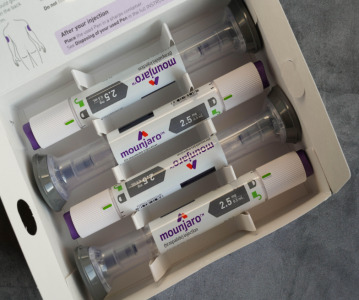FDA approves Roche’s Cotellic in combination with Zelboraf in advanced melanoma

FDA approval underscores the important role of targeted medicines to help people with BRAF V600 mutation-positive advanced melanoma.
Roche has announced that FDA has approved Cotellic (cobimetinib) for the treatment of people with BRAF V600E or V600K mutation-positive unresectable or metastatic melanoma in combination with Zelboraf (vemurafenib). Cotellic and Zelboraf are not used to treat melanoma with a normal BRAF gene. Cotellic is Roche’s seventh new medicine approved by the FDA in the past 5 years.
“When used in combination, Cotellic and Zelboraf help delay disease progression and help people live significantly longer than with Zelboraf alone,” said Sandra Horning, Chief Medical Officer and Head of Global Product Development. “With this approval, people with this type of deadly and aggressive skin cancer now have a new targeted option.”
The FDA approval is based on results from the Phase III coBRIM study, which showed Cotellic plus Zelboraf reduced the risk of disease worsening or death (progression-free survival; PFS) by about half in people who received the combination [HR=0.56, 95 percent CI (0.45-0.70); p<0.001], with a median PFS of 12.3 months for Cotellic plus Zelboraf compared to 7.2 months with Zelboraf alone. An interim analysis also showed the combination of Cotellic and Zelboraf helped people live significantly longer (overall survival; OS) than Zelboraf alone (HR=0.63, 95 percent CI 0.47-0.85; p=0.0019). The objective response rate (tumuor shrinkage) was higher with Cotellic plus Zelboraf compared to Zelboraf alone (70 vs. 50%; p<0.001), as was the complete response rate (complete tumor shrinkage, 16 vs. 11%).
Possible serious side effects with Cotellic include risk of skin cancers, increased risk of bleeding, heart problems that can lead to inadequate pumping of the blood by the heart, rash, eye problems, abnormal liver test or liver injury, increased levels of an enzyme in the blood, and photosensitivity. The most common side effects of Cotellic include diarrhea, sunburn or sun sensitivity, nausea, fever and vomiting. Cotellic can also cause changes in blood test results.
The final overall survival analysis from the coBRIM study will be presented at the Society for Melanoma Research 2015 International Congress (SMR) held in San Francisco, California, 18–21 November.
In September, the Committee for Medicinal Products for Human Use (CHMP) at the European Medicines Agency (EMA) issued a positive opinion for Roche’s marketing authorization application for Cotellic in the European Union. A decision from the European Commission is expected before the end of 2015. Cotellic was approved in Switzerland by Swissmedic in August 2015.
Related News
-
News The next 15 drugs up for negotiation with Medicare include several blockbusters
By now, everyone is quite familiar with the drug price negotiations taking place between drug companies and the Centres for Medicare & Medicaid Services (CMS) in the USA as part of measures being taken to reduce the cost of drugs for patients, to make ... -
News PSCI Welcomes Delpharm, Samsung Biologics, and Suven as First Supplier Partners
The pharmaceutical industry continues to evolve with an increasing focus on responsible sourcing, sustainability, and collaboration across the supply chain. Under a new model to recognise suppliers within the pharmaceutical and healthcare industry that... -
News Drug prices agreed upon as part of the US Inflation Reduction Act
The Inflation Reduction Act brought into constitution by the Biden administation in 2022, which proposed a drug price negotiation between the government and pharmaceutical companies, has reached it's first agreement. -
News Eisai Alzheimer’s drug authorised in UK but still faces obstacles
In partnership with BioArctic AB, pharmaceutical company Eisai has been granted Marketing Authorisation by the Medicines and Healthcare products Regulatory Agency (MHRA) for its Alzheimer’s disease drug product Leqembi. -
News Eli Lilly's weight loss drugs removed from the FDA's shortage list
The US FDA have recently updated their drug shortage list. The recently released list shows that all dosage forms of Eli Lilly's weight-loss drug Zepbound and their diabetes drug Mounjaro are now available. -
News Global advancements in the diagnosis and treatment of rare diseases: Rare Disease Day 2024
Rare Diseases Day is celebrated on the 29th February 2024 and represents the plight of rare disease patients to gain diagnosis and access to suitable treatment. -
News Pharmaceutical industry supports COP28 health stance in joint statement
As COP28 takes place over this week in Dubai, UAE, several bodies in the pharmaceutical and health industries have come together to announce support of key movements in sustainability in the sector, and to recognise sustainability as a health issue.&nb... -
News Biden backs Cold-War measures to shore-up medical supply chains
In a recent strategy to combat rising inflation and the cost of living crisis, President Joe Biden has invoked a Cold War-era act to increase investment in a selection of medicines and supplies.
Recently Visited
Position your company at the heart of the global Pharma industry with a CPHI Online membership
-
Your products and solutions visible to thousands of visitors within the largest Pharma marketplace
-
Generate high-quality, engaged leads for your business, all year round
-
Promote your business as the industry’s thought-leader by hosting your reports, brochures and videos within your profile
-
Your company’s profile boosted at all participating CPHI events
-
An easy-to-use platform with a detailed dashboard showing your leads and performance



.png)



